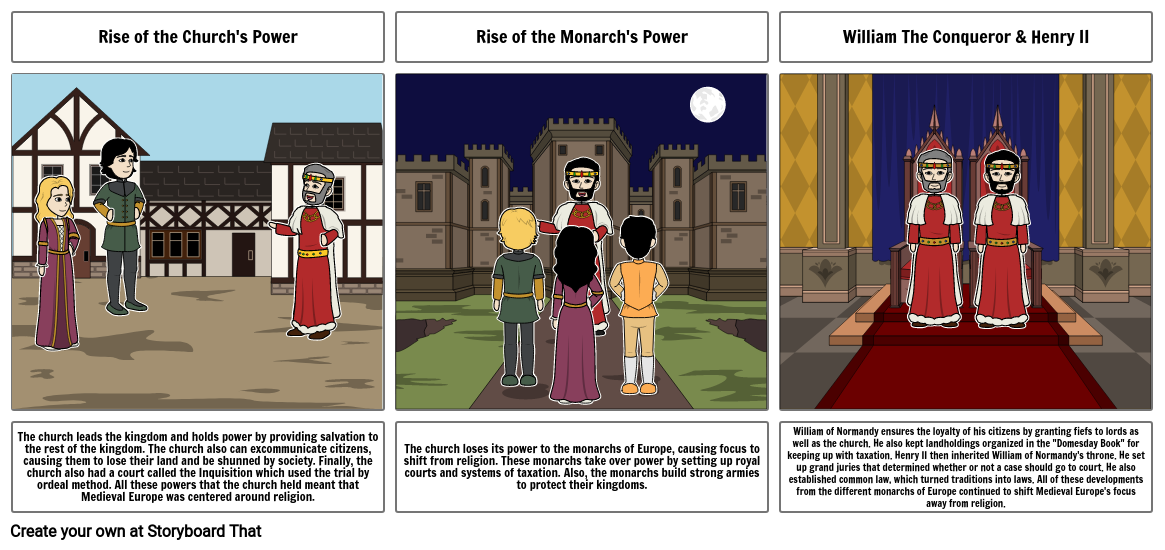Medieval Europe Religion

Storyboard Text
- Rise of the Church's Power
- Rise of the Monarch's Power
- William The Conqueror & Henry II
- The church leads the kingdom and holds power by providing salvation to the rest of the kingdom. The church also can excommunicate citizens, causing them to lose their land and be shunned by society. Finally, the church also had a court called the Inquisition which used the trial by ordeal method. All these powers that the church held meant that Medieval Europe was centered around religion.
- The church loses its power to the monarchs of Europe, causing focus to shift from religion. These monarchs take over power by setting up royal courts and systems of taxation. Also, the monarchs build strong armies to protect their kingdoms.
- William of Normandy ensures the loyalty of his citizens by granting fiefs to lords as well as the church. He also kept landholdings organized in the "Domesday Book" for keeping up with taxation. Henry II then inherited William of Normandy's throne. He set up grand juries that determined whether or not a case should go to court. He also established common law, which turned traditions into laws. All of these developments from the different monarchs of Europe continued to shift Medieval Europe's focus away from religion.
Over 30 Million Storyboards Created

